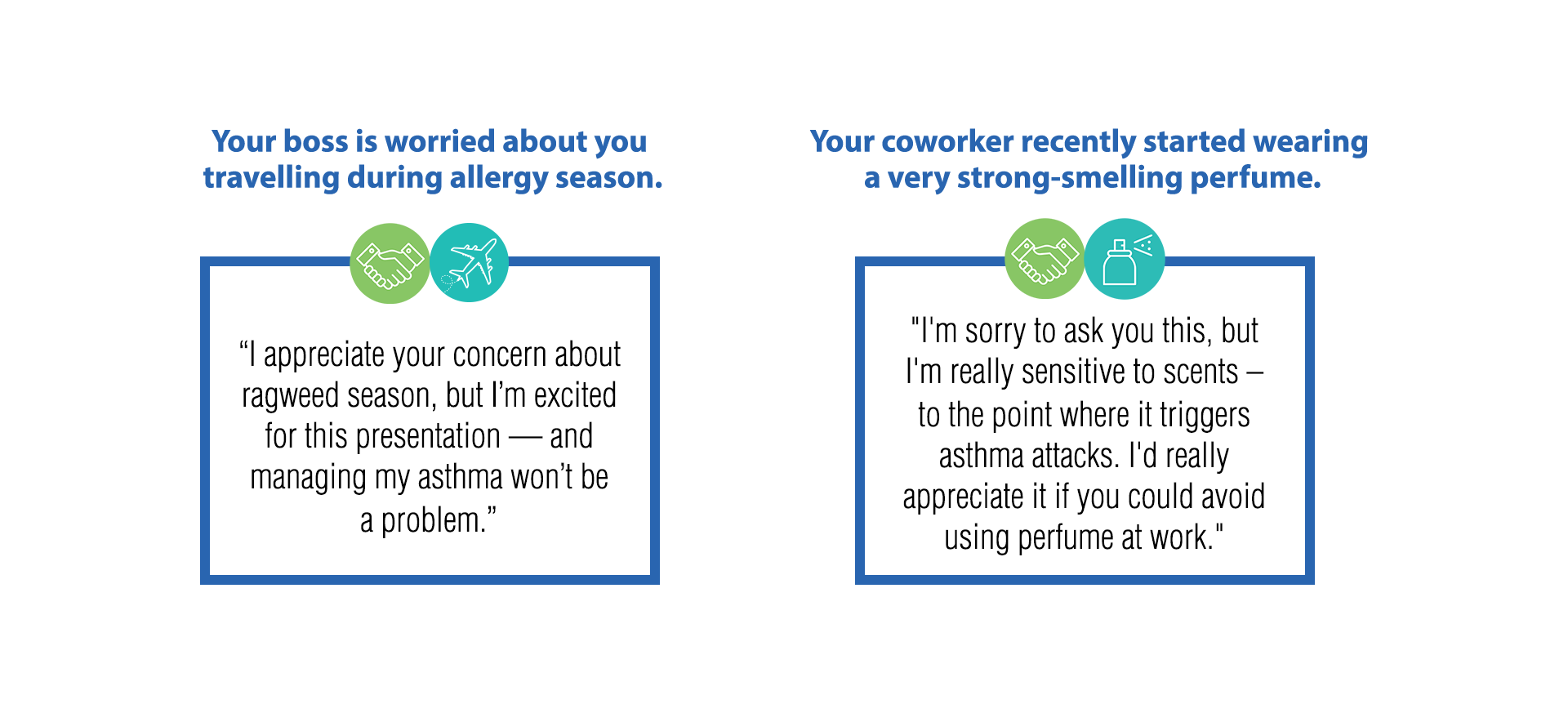Asthma is a complex disease, with every experience being different. Talking openly and honestly about it can help someone living with asthma manage their disease, as well as their relationships with others.
The following tips are designed to help navigate common conversations about asthma and the scenarios in which it may interfere with an activity or daily routine. It can be hard to explain how asthma interferes with "normal" life, but these important conversations are critical.
1. Share experiences
No one knows asthma and its impact better than the person living with it. Sharing personal history and severity is the first step to educating others.
2. Mention triggers
Asthma is a chronic respiratory disease that causes inflammation and narrowing of the airways which can make it hard to breathe. Irritants like smoke and dust, or allergens such as pet dander and mold can often trigger asthma. Explaining unique triggers will help others take steps to help avoid exposure.
3. Be an advocate
Frequent and honest conversations can help a person with asthma and those around them work together to find solutions and help minimize disruptions to daily life.
There are many scenarios in which asthma may challenge a person’s daily routine or plans. Whether it’s at home, at work or out with friends, a person living with asthma is required to navigate challenging or uncomfortable situations in order to simply breathe.
A number of scenarios are outlined below representing these interpersonal interactions and situations. The conversation tips above have been applied to each scenario to demonstrate how best to work through them.
Asthma at Home
Even at home, there are situations where it’s important for someone living with asthma to set boundaries in order to minimize disruptions to their life. Guests, roommates, or even family members may not fully grasp the severity of their asthma or the living environment they need to properly manage their condition. Having a conversation about asthma can help others understand and help keep a healthy home.

Asthma at Work
Communicating with coworkers and managers about asthma is important to helping the person living with asthma manage their condition at work. Oftentimes, a colleague may not be aware of the condition and its complexities, much less the irritants and allergens a person may have to avoid. Informing people on what can cause an asthma flare-up is a first step to reducing exposure to triggers, while minimizing disruptions to the work day.

Asthma Out and About
People living with asthma can’t always control their surroundings; however, they can communicate how to pivot plans to suit their unique needs. Having a conversation about asthma can reduce the chance of exposure to triggers and lead to a better understanding amongst all parties.

For a deeper understanding of how to talk about asthma symptoms and find the right management plan, it is important for people with asthma and their loved ones talk to an asthma specialist. For asthma-related resources, educational information and tools, visit BreakTheCycle.com.




